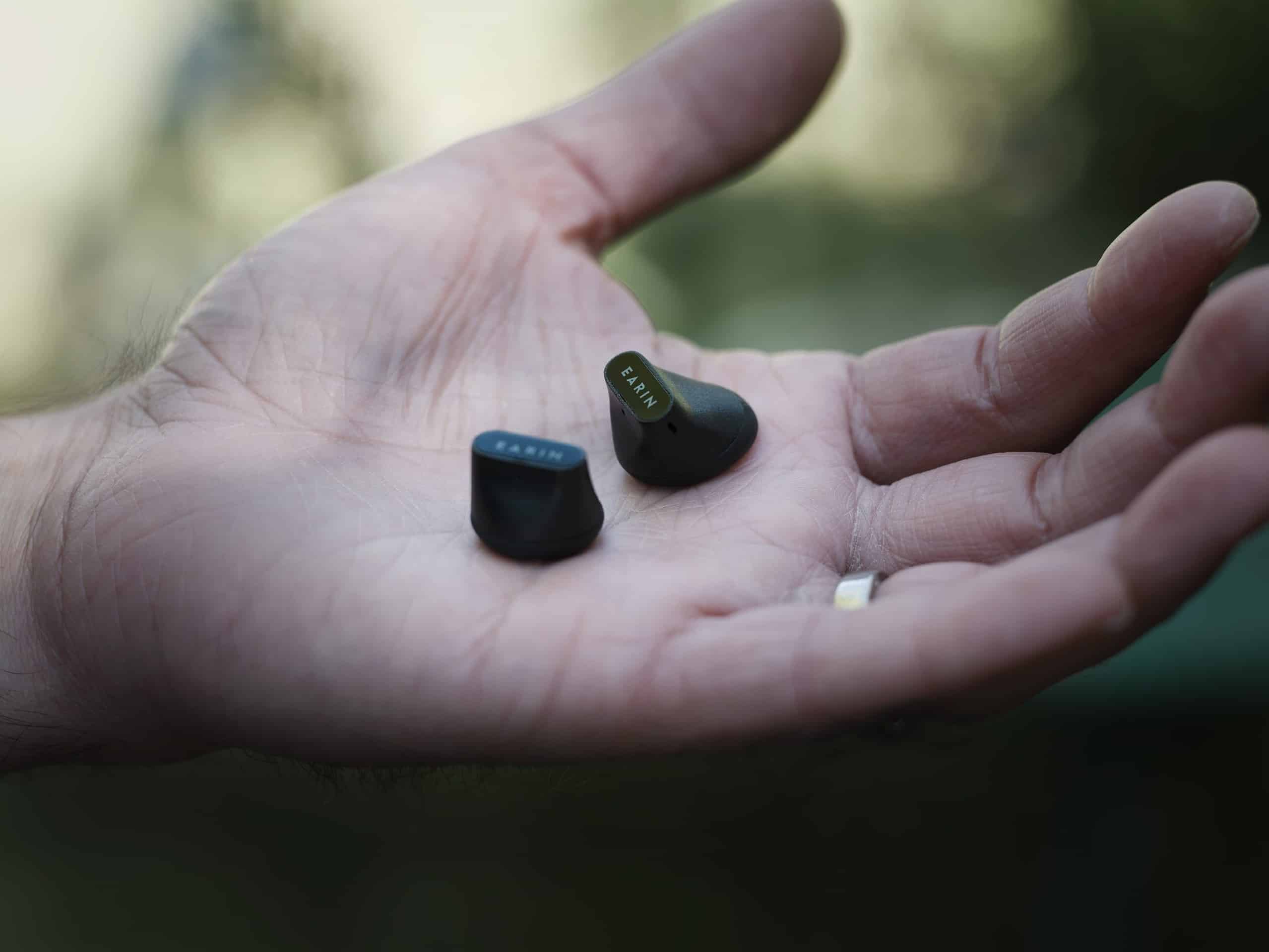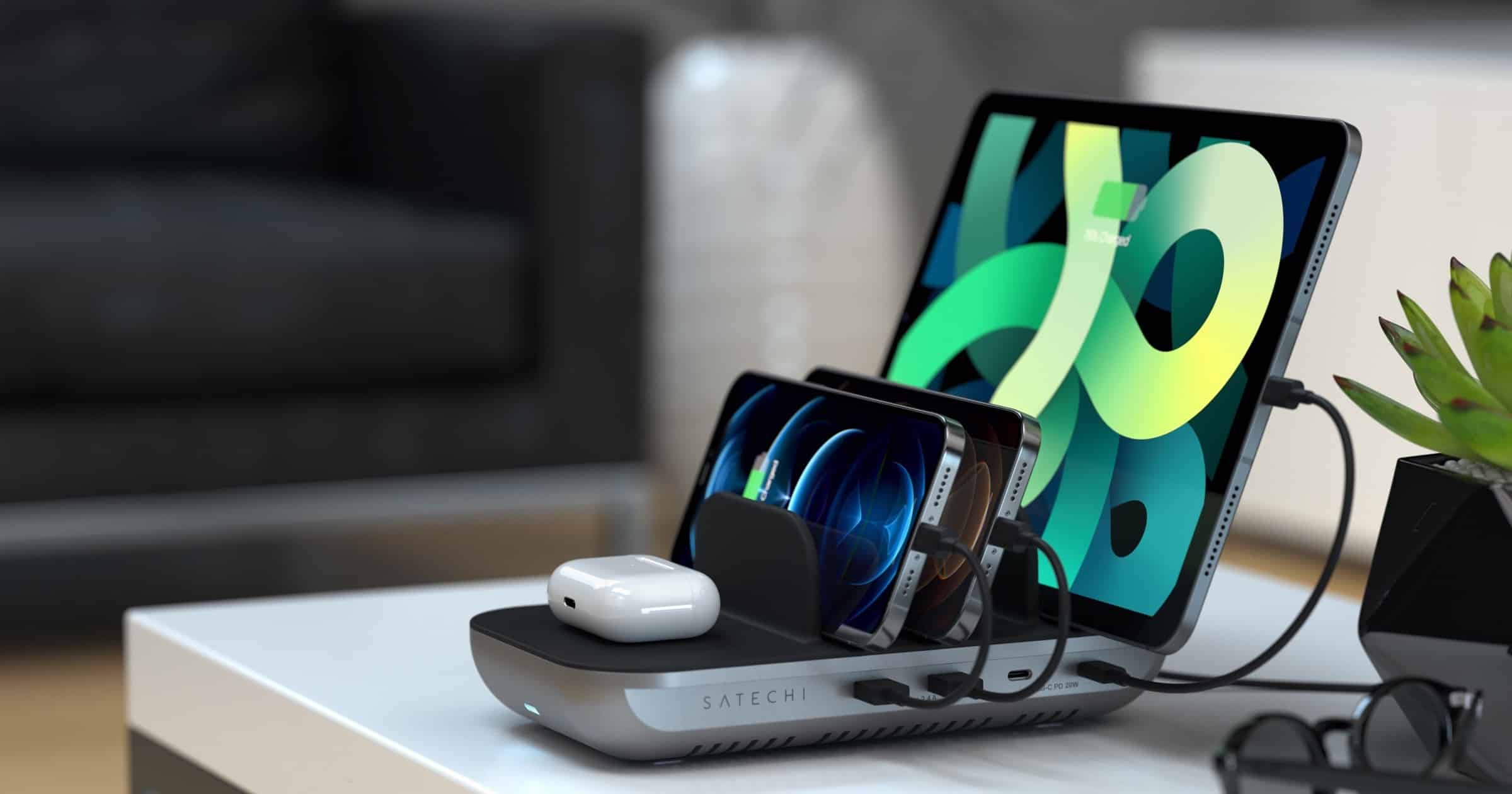Enter our new international giveaway for a chance to win the brand new iPhone 16 Pro.
Apple and Hyundai to Sign Electric Car Production Deal by March
Apple and Hyundai will sign a deal to partner on autonomous vehicles by March, according to reports from South Korea.
Samsung Robots, Kelly vs Ringing iPhones – TMO Daily Observations 2021-01-11
Bryan Chaffin and Jeff Butts join host Kelly Guimont to discuss some announcements from CES, and Kelly’s quest to answer calls hands free.
CES 2021: LIVALL Rolls Out New Smart Cycle Helmets
Smart cycle helmet brand LIVALL unveiled its latest products at CES 2021, and will launch the BH60 Neo range with various safety features.
CES 2021: Otterbox Debuts Mobile Gaming Accessories
Otterbox a smartphone mount for your console controller, an Xbox controller shell, an iPhone gaming case, and a privacy screen protector for CES 2021.
Biogen and Apple Launch Cognitive Health Study With Apple Watch, iPhone
Apple has teamed up with Biogen on a new health study to monitor cognitive health using an Apple Watch and an iPhone as tools.
New Values-Focused Videos Appear on Apple UK YouTube
Three new videos appeared on the Apple UK YouTube channel that all related to the iPhone and highlighted the company’s values.
CES 2021: Earin A-3 Brings 14.3mm Dynamic Drivers to True Wireless Earbuds
Earin, the company who brought the first true wireless earphones to market, has announced their latest model, the Earin A-3. Sleeker than all previous models, the A-3 fits completely in the outer ear, with no stem, and yet is still able to pack a 14.3mm dynamic driver to deliver full sound. Available later in Q1 2021 for US$199, Earin A-3 uses the combination of a microphone, an accelerometer, and an adaptive algorithm to monitor voice and background noise in real-time, removing ambient noise and giving wearers high quality music and calling experiences. With 5-hour battery life, USB-C and wireless Qi charging, and Earin’s past performance, we expect these to be winners. Look for Earin A-3 at both Earin.com and Amazon later this quarter.
CES 2021: Satechi Unveils Dock5 Multi-Device Charging Station
Mobile accessory company Satechi has unveiled a new multi-device charging station called Dock5 as part of CES 2021.
All The Gear, But No Idea(r) — Mac Geek Gab 852
Your questions drive the bus this week, as John and Dave provide answers about AirDrop, Spotlight, Screen Protectors, 10G Ethernet, Time Machine, and more. That’s not all, though, your two favorite geeks have Cool Stuff Found and Quick Tips to share, too. Join in the fun: press play and enjoy learning at least five new things!
Kevin Kelly vs. Kirkpatrick Sale: Has Tech Destroyed Society?
Here’s your long read for the weekend. Back in 1995, then-executive editor of Wired made a bet with Luddite Kirkpatrick Sale. The proposition? A bet that technology would destroy the world by 2020.
Twenty-five years later, the once distant deadline is here. We are locked down. Income equality hasn’t been this bad since just before the Great Depression. California and Australia were on fire this year. We’re about to find out how easy that money is.
I find myself between their arguments. Technology produces both positives and negatives, and issues like climate change largely accelerated by corporations make me pessimistic as a young person.
Apple Warns Conservative Platform ‘Parler’ to Improve Moderation or Face Expulsion
Apple has requested Parler that it should improve its moderation policies and remove objectionable content or face removal from the App Store.
LifePro FlexCycle Under Desk Exercise Bike: $149.99
We have a deal made for pandemic times and working from home: an under-desk exercise bike called LifePro FlexCycle. Put it under your desk and peddle while you work. This one features eight adjustable tension settings, and allows you to monitor your stats. It’s $149.99 through our deal.
Apple Shares Trailer for ‘Losing Alice’ Coming January 22
Apple has shared a trailer for “Losing Alice” on YouTube, a series that will be released for Apple TV+ on January 22. In this internationally acclaimed psychological thriller, Alice is a middle-aged film director who feels lost since raising her family. But a chance meeting with Sophie, a femme-fatale screenwriter, takes Alice on an obsessive journey toward success at any cost.
Miiskin Announces Automatic Skin Imaging Feature for Melanoma Detection
Miiskin helps you track and document moles and marks on your skin, and the company has a premium subscription service that uses augmented reality to make it easier.
State Department Creates New ‘CSET’ Bureau
Secretary of State Mike Pompeo announced the creation of a new bureau within the state department for cybersecurity.
Flic Smart Button System with Flic 2, Flic Hub LR and HomeKit Support
Flic Smart Button System now features the Flic 2 smart button, support for the Flic Hub LR, and support for Apple’s HomeKit.
Nooie Shows Full Featured Cam Doorbell
Nooie is showing their latest product, the Nooie Cam Doorbell, at the Techfluence CES Preview event.
Security Friday, Secret Messages – TMO Daily Observations 2021-01-08
Andrew Orr joins host Kelly Guimont to discuss Security Friday news, including what’s up with WhatsApp (sorry) and some things to know about encryption.
iPhone 11 Was Most Popular New Device During December 2020
The iPhone 11 was the smartphone with the most new device activations in December 2020, with the iPhone 12 Pro Max and iPhone 12 next in line.
UK Competition Authority Launches Investigation into Google
The UK’s Competition and Market Authority has launched an investigation into changes proposed by Google’s Privacy Sandbox project.
Quibi Confirms Deal to Distribute Content on The Roku Channel
Roku has done a deal to purchase the rights dozens of Quibi shows, Deadline reported. Titles like Most Dangerous Game, Dummy and Murder House Flip were included in the deal.
The deal puts a final punctuation mark on the Quibi experiment. Founded by Katzenberg and Meg Whitman with a remarkable $1.75 billion in startup capital, the mobile-focused streaming service had a noisy debut last April but never gained traction. Six months in, execs announced it would shut down by the end of the year. The coronavirus pandemic did not help the on-the-go premise of Quibi, whose name is short for “quick bites,” but its shows also drew generally mixed reviews, though #FreeRayshawn netted two Emmys. “The most creative and imaginative minds in Hollywood created groundbreaking content for Quibi that exceeded our expectations,” said Quibi Founder Jeffrey Katzenberg. “We are thrilled that these stories, from the surreal to the sublime, have found a new home on The Roku Channel.”
Hyundai and Apple Are 'in Discussions' About Electric Vehicle Production
As rumours abound, Hyundai confirmed it is in early-stage talks with Apple about working together on an electric vehicle.
How TikTok Used the iPhone 12 Pro's LiDAR Scanner
TikTok released new year-themed effects that utilized the iPhone 12 Pro’s LiDAR Scanner, and there is likely more to come.
FTC Settles With App Maker ‘Tapjoy’, Blames Apple in Process
The FTC has reached a settlement with Tapjoy over claims that is used false advertising offers for in-game rewards that weren’t given to users.
But regulators also said Apple and Google helped create the environment that squeezes mobile gaming industry players and incentivizes them to find other monetization models that may have unsavory consequences for consumers.
Tapjoy runs a platform that lets users complete activities, like signing up for a free trial or downloading and running an app, in exchange for in-game virtual currency. It earns commissions from third-party advertisers who want to entice users to perform these tasks.
I think if a company is willing to do “unsavory things” to people, it probably doesn’t need to be forced into doing so. On Apple’s side, Tapjoy possibly ran afoul of review guideline 3.2.2 (vi).





















